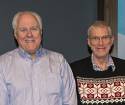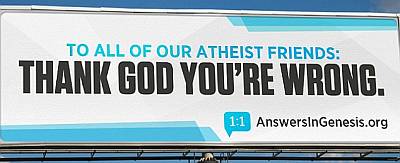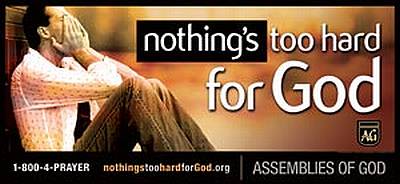Friday Bible Blogging - Psalms 121 to Psalms 130
This entry is part of a series. For a listing of all entries in the series, go to the Index. Unless otherwise noted, all Bible quotations are from the New Revised Standard Version (NRSV). All headings are links to those Bible chapters.
 This week's entry continues on in the Songs of Ascent collection with Psalms 121 through 130. They're all relatively short, but a few highlight some of the negative aspects of the Bible.
This week's entry continues on in the Songs of Ascent collection with Psalms 121 through 130. They're all relatively short, but a few highlight some of the negative aspects of the Bible.
This psalm mainly focuses on God protecting the psalmist. According to the New Oxford Annotated Bible (NOAB), this might have been a call and response, where a pilgrim posed the question in verse 1, answered himself in verse 2, and then received further response from the priest for the remainder of the psalm.
This psalm, supposedly 'Of David', focuses on Jerusalem. This seems appropriate if these Songs of Ascent were for pilgrims to Jerusalem.
The NOAB pointed out an alliteration in the original Hebrew that I never would have known about reading the English translation. Where verse 6 says, "Pray for the peace of Jerusalem", the original Hebrew says, "sha'alu shalom yerushalaim".
This is a short psalm praising God and asking for mercy. The NOAB pointed out an interesting tidbit that I'd glossed over on my own, that this Psalm actually compares god to a female, which is pretty rare in the Bible.
as the eyes of a maid
to the hand of her mistress,
so our eyes look to the Lord our God,
until he has mercy upon us.
Psalm 124 is one of thanksgiving, that the people wouldn't have survived had it not been for God.
This is a psalm discussing the righteous and the wicked, comparing the righteous to Mount Zion "which cannot be moved, but abides for ever."
This psalm starts off by recalling how the Lord had blessed Israel during the return from the Babylonian exile, but then goes on to ask God to "Restore our fortunes". As the NOAB puts it, "The book of Ezra suggests that in fact few returned from Babylon, the return was a disappointment, and the hyperbolic prophecies of Isa 40-55 were not fulfilled." Reading the chapter with that understanding, it's actually a bit sad - here's this group of people who trusted completely in this prophecy, and now they're left wondering why it hasn't been fulfilled.
The first verse of the psalm points out the futility of human endeavors unless the Lord is a part of it - not exactly a ringing endorsement of humanity, but not really out of line for what you'd expect from someone who believes in God.
The second verse can actually be taken as a pretty good message, for people who were burning the candle from both ends even back then.
It is in vain that you rise up early
and go late to rest,
eating the bread of anxious toil;
for he gives sleep to his beloved.
But the second half of the psalm is the part that really stood out to me. Here, I'll just quote it in full.
Sons are indeed a heritage from the Lord,
the fruit of the womb a reward.
Like arrows in the hand of a warrior
are the sons of one's youth.
Happy is the man who has
his quiver full of them.
He shall not be put to shame
when he speaks with his enemies in the gate.
This short section epitomizes several of the issues I have with the Bible. First, notice the word choice on what constitutes a blessing - 'sons'. It could have been children, but in the sexist culture that gave rise to the Bible, daughters weren't the same type of blessing as sons. Notice also the violent imagery of the passage, with a 'warrior' and 'arrows'. Psalms hasn't been nearly as bad as some of the previous books I read, but many parts of the Bible seem to glorify violence.
And finally, notice the emphasis put on having many children. Granted, at the time this psalm was written, that would have been fine. So long as a person could support all of their children and give them the attention they deserve, there was no reason not to have many. But in the modern day, the human population is just too big, and we know all the ways we're stressing the environment. Having many, many children and adding to that stress is irresponsible. One passage in particular jumped out at me, "his quiver full of them". I checked on Wikipedia, and this is indeed the inspiration for the title of the Quiverfull Movement. In case you've never heard the term, this is a modern evangelical practice with a whole host of practices. It's not just about impregnating your wife as many times as possible, it's also strict gender roles with the husband as the head of the household, often with homeschooling to keep kids away from bad secular influences, women dressing modestly so as not to tempt the men (long dresses, head coverings), etc. If you want to learn more, Vyckie Garrison has a blog, No Longer Quivering, to, according to the blog, "tell the story of her 'escape' from the Quiverfull movement." She has a section on her site, What Is Quiverfull?, as a Q&A to explain the movement. Here's how she closed that entry:
Generally the longer a Christian family is involved in the home school community, the more deeply they become involved in this "family values" lifestyle ~ it is a process which transforms a "normal" family into a patriarchal cult completely at odds with the general population. In fact, the more "peculiar" (set apart) the family becomes, the more they consider themselves "true believers" following "the narrow way" as opposed to their neighbors who are on the "broad path which leads to destruction."
I noticed that even the NOAB practiced a bit of apologetics in their footnotes on this section, which is rather unusual for them, when they said "It is a declaration that one of God's greatest blessings is children (in that culture, sons)..." It's almost like they're trying to slip it past you by putting it in a parenthetical note that the author of this psalm really was talking about sons specifically, not children in general.
Anyway, sorry for the digression, but this movement really does bother me.
This is another psalm praising God and promising how you'll be rewarded if you 'fear the Lord'. But if you just read between the lines, it's another example of the sexism of the Bible.
Your wife will be like a fruitful vine
within your house;
your children will be like olive shoots
around your table.
Thus shall the man be blessed
who fears the Lord.
It's specifically 'the man' who will be blessed. And the nature of the blessings makes it seem like his wife and children belong to him, almost like property.
This is a request for the Lord to punish the psalmist's enemies, who have "attacked me from my youth".
This psalm asks for redemption. It makes the point of saying how unworthy people are, but that God is forgiving.
---
Like I said in the introduction, a few of those psalms really do highlight some of the negative aspects of the Bible. Oh well, that's one more week closer to being done with this book. To continue with the countdown that's become standard by this point - I only have two more weeks of Psalms left to go.
New Revised Standard Version Bible, copyright 1989, Division of Christian Education of the National Council of the Churches of Christ in the United States of America. Used by permission. All rights reserved.


 Well, I have some good news to report, as a follow-up to an entry I'd written last week,
Well, I have some good news to report, as a follow-up to an entry I'd written last week,  Through a series of following links that began on an
Through a series of following links that began on an 



 Now that August is over, it's that time again to check the server logs to see how popular different pages were on this site. But as soon as I started to do that, I realized I'd forgotten to check at the end of July. So, today you get two top 10 lists - one for July, and one for August.
Now that August is over, it's that time again to check the server logs to see how popular different pages were on this site. But as soon as I started to do that, I realized I'd forgotten to check at the end of July. So, today you get two top 10 lists - one for July, and one for August. Ben Carson has apprently just won a GOP straw poll in Indiana, getting a whopping 67% of the votes (see Christian Post -
Ben Carson has apprently just won a GOP straw poll in Indiana, getting a whopping 67% of the votes (see Christian Post -